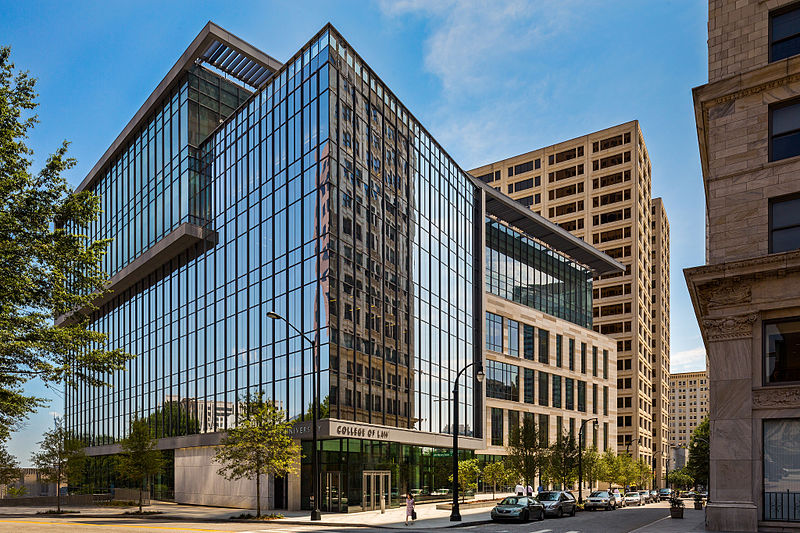Georgia State University Spurs Downtown Atlanta Development
Georgia State University (GSU) has been experiencing unprecedented growth. It’s recent acquisition of Georgia Piedmont College has boosted the student population from 36,000 to 50,000. And as we know, with any population growth comes development.
A recent Atlanta Business Chronicle article states, “And during the past two decades, roughly since Atlanta’s 1996 Centennial Olympic Games, the school’s evolution has been accompanied and exemplified by sustained growth of GSU facilities in Atlanta’s core.”
Let’s take a look at the impact GSU’s population and development growth has had in downtown Atlanta. The growth impacts many different real estate types, including:
Student Housing
Student housing is a major component of GSU’s facilities growth. The same Atlanta Business Chronicle article notes that GSU recently added 1,152 with the opening of Piedmont Central in August 2016, located on the corner of Piedmont and John Wesley Dobbs Avenue.
Private developers are active in GSU student housing projects as well. Atlanta-based South City Partners plans for 120 Piedmont, a $80 million off-campus, student housing tower, offering 650 beds arranged in 228 units of 1 – 4 bedrooms. The building will include 6,400 square feet of retail and an existing, renovated gas station. Developers hope to deliver this high-end project, complete with 7th floor amenity deck plus pool overlooking GSU and 26th floor rooftop terrace, for the 2018 school year.
According to the August 2016 article referenced above, 2,100+ beds have been added to GSU’s student housing roster since 2014, 256 are under construction and 1650 are planned. In fact, GSU opened its first dorm in 2002 and as of August 2016, offered 4,750 beds to students, calling Piedmont Ave the school’s residential corridor.
It’s pretty clear GSU is a commuter school no more.
Office Buildings + New Buildings
GSU is building new buildings as well as transforming old office buildings. Repurposing old office buildings accomplishes two goals: it expands GSU’s campus while repurposing already-existing Atlanta real estate. It’s a win-win situation for both university and city.
Here are some examples:
- Renovation of the SunTrust Building to become the GSU College of Arts and Sciences
- Renovation of 55 Park Place to become GSU’s Mack Robinson College of Business
- Completion of new GSU College of Law Building, a $66 million, 205,000-square-foot, seven-story LEED-certified building
- Completion of new Creative Media Industries Institute, which supports the flourishing Georgia Film Industry discussed in my previous blog
Obviously, GSU’s development footprint continues to grow in downtown Atlanta.
Turner Field
It is no secret that GSU teamed with a private developer purchased Turner Field for $30,000,000. According to the Atlanta Journal-Constitution, current plans show Turner Field will be converted into GSU’s first football stadium and the footprint where Atlanta-Fulton County Stadium once stood will eventually serve as GSU’s baseball stadium. But the development does not end there. Plans also include classroom space, student housing, apartments and retail.
Construction of Turner Stadium began in February, reports Alex McQuade on 11-Alive. The plan is to have renovations completed by the GSU Panthers Football team’s opening game on August 31 against Tennessee State University. GSU hopes to be in the new baseball stadium by the 2019 season opener. McQuade also reports that GSU may develop the remaining property, which could include:
- 1,500,000 square feet of office space
- 700,000 square feet of commercial and retail space
- 625 hotel rooms
- 2750 apartment units
- 50 single-family residences
If developed, the completion date would be 2031. Developers have worked closely with community leaders in Summerhill, Mechanicsville and Peoplestown to create a unified vision for the area.
Growth + Development > Investment
It’s apparent GSU’s growth and development have favorably impacted downtown Atlanta’s growth and development. But what does this have to do with investment?
GSU’s takeover of downtown Atlanta coupled with the Mercedes Benz Stadium, the potential Underground Atlanta redevelopment and Centennial Olympic Park improvements all bode well for the future of Downtown Atlanta.
Obviously, investing near universities and large developments creates opportunities and drives up values. If you already own property near GSU’s new or repurposed developments, then you’re in luck—your investments are probably looking good. Honestly, you might even do well if you buy now.
One thing is certain: GSU and Downtown Atlanta’s symbiotic relationship is a prosperous one, and it is here to stay.
What other GSU projects impact Atlanta? How do you expect future projects to spur Atlanta’s growth?



